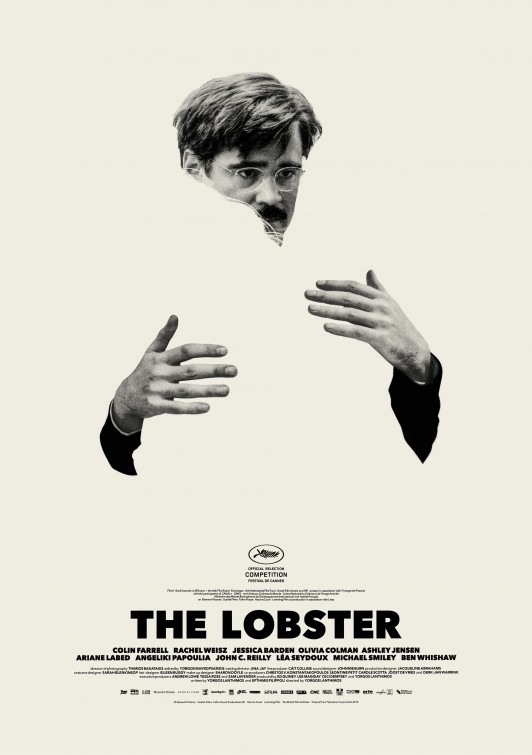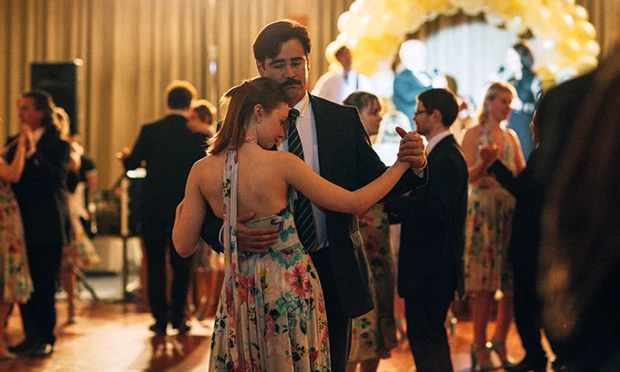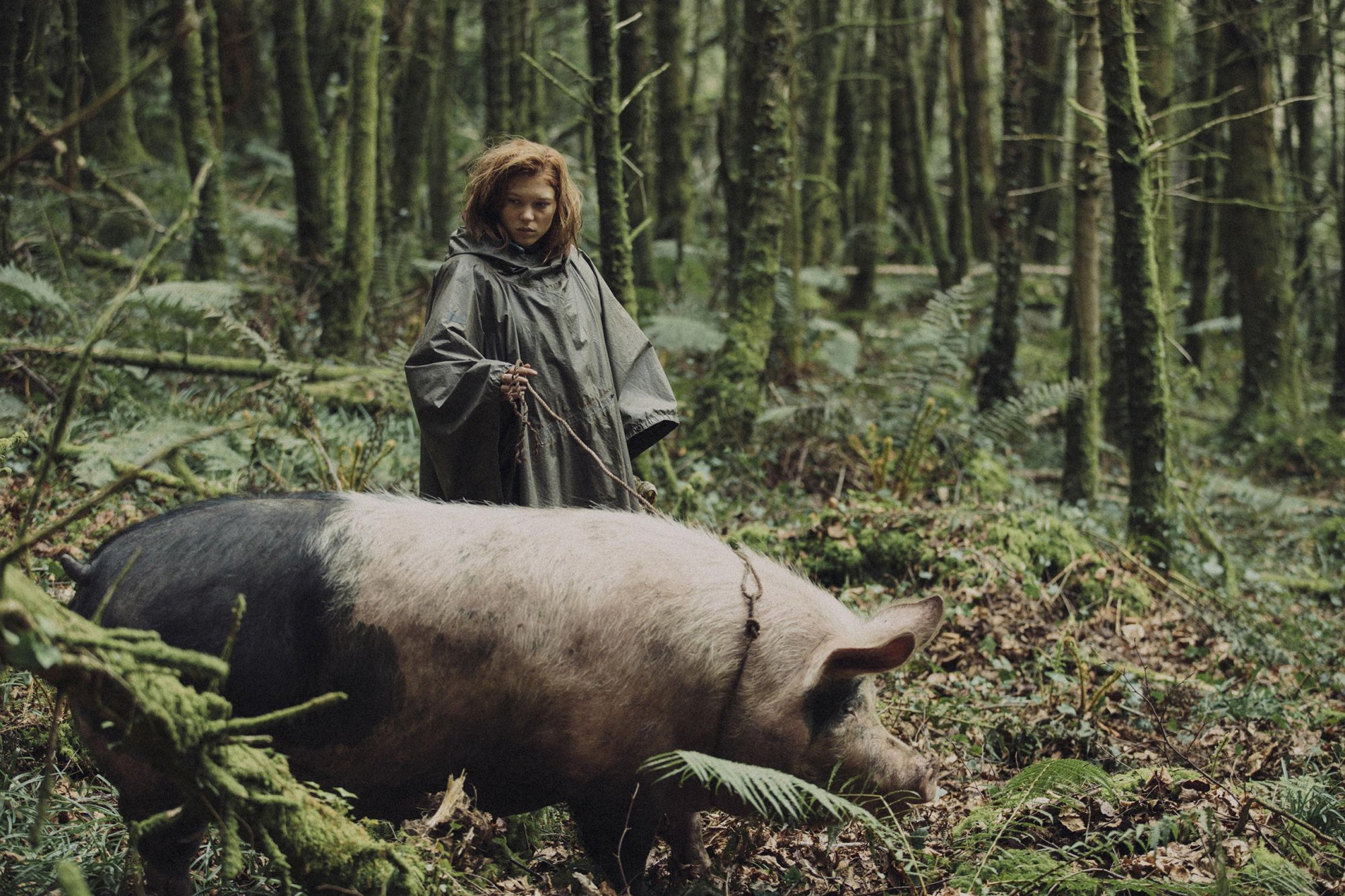THE LOBSTER Review
Director: Yorgos Lanthimos
Genre: Dark Comedy
Release: 2015
Whether it be for a single night or throughout a lifetime, there’s a certain sense of belonging one attains when becoming intimate with another. It may just be your brain’s reward center being stimulated for having an opportunity to perpetuate the species, or genuine care and love blanketing a flourishing relationship. Famed Greek director Yorgos Lanthimos, who has had fun in exposing the awkwardness of human interaction in his previous films, seeks to explore these themes in his English language debut, THE LOBSTER. Ever since his Oscar nomination for DOGTOOTH in 2011, Lanthimos has been on the radar. Both DOGTOOTH and ALPS looked towards the importance of familial bonds, and though THE LOBSTER switches gears by covering a love story, much of Lanthimos’s unique style is still retained. Those who are not familiar with his work may see the stiff, almost doll-like acting and small yet effective bursts of violence (usually from self-harm) as unnerving or bizarre, but they all help to reinforce the messages Lanthimos sends. This time around, seeing that the characters are forced to interact on sheer mating principles, these interactions serve to be more darkly comedic than anything.
It’s like a school dance where everyone is a creepy chaperone
The newest and most striking prospect, however, is the way in which he gets the audience to believe in an entire world not too different from our own. Shot in some of Ireland’s most beautiful locations, THE LOBSTER takes place in a society where if an individual has not found a significant other they are forced to stay in a lavish inn known as “The Hotel” with other singles. If one has not found a mate in their allotted time, they are sent into “The Transformation Room” where they are forced to become an animal of their choosing. We begin with David, played by a near unrecognizable Colin Farrell, who finds himself at The Hotel after being freshly divorced from his cheating wife. Early on, we are given narration from Rachel Weisz’s character before she is introduced in David’s story. This helps more than anything because she speaks mostly through David’s perspective and is able to flesh out his character and examine his thoughts and feelings without spoiling the classic Lanthimos character trait of being soft-spoken. In the event that he does not meet someone to couple with, David’s animal transformation preference is that of a lobster because of their long lifespan and never-ending fertility. Though he is praised for having a unique animal choice by The Hotel, he quickly grows resentful of their methods. Lanthimos has always had elaborate ways to torture his subjects and this is no exception. For instance, small dances are held in a dumpy ballroom, reminiscent of high school years, where each patron is given the same thing to wear according to their gender. While it’s completely normal to see every man wear a similar-looking fancy suit, it becomes strangely unsettling seeing every woman wear the same floral pattern dress given how varied and extravagant this culture is in normal society. It is these little touches, these tiny alterations from real life, that make Lanthimos as sharp as ever in making a world that is somewhat familiar but at the same time strangely horrific.
Our dear David soon realizes that, in each relationship spawned out of The Hotel, the couple shares a certain quirk or definable characteristic that bonds them together. Though these traits are purely superficial, they are crucial in these characters’ lives and reflect their often overlooked presence in our own world. After several hunting excursions in which those at The Hotel tranquilize escapees known as “loners” to add to their allotted days, David starts to fancy the most ruthless hunter simply known as “the heartless woman,” played by Lanthimos veteran Angeliki Papoulia. Though this part is much smaller than Papoulia’s other work with Lanthimos, it’s one of her best yet, as she succeeds in being a vicious foil to Farrell’s timid apprehension. Of course in protocol, David seeks to be more “heartless” like her, and ends up in several embarrassingly hilarious scenes proving that one should not seek to change themselves when seeking another.
After a few less than comfortable moments with the heartless woman, David escapes and finds himself in league with the loners. He realizes that since society and The Hotel have held extreme views against them, the loners naturally cope by incorporating equally drastic rules on the other side of the spectrum. No loner is to have any hint of a relationship between another. This proves problematic when David is saved and subsequently falls in love with Rachel Weisz’s character, a woman who shares short-sightedness with him. Though Lanthimos indulges in having these two characters’ dialogue hilariously on the nose and interactions still as robotic as the others in the film, their relationship being secret only adds to this rather than leaving it static or unbelievable. David and the short-sighted woman develop a masterfully complex code when spending time together to keep the other loners’ noses elsewhere. The two are at odds with both The Hotel and the loners, wishing to reach a balance between the two extremes and hammering in the notion that both ideals are tragically flawed. Despite the perturbing nature of Lanthimos’ directorial style, the awkwardness of every scene between the two oozes with sharp commentary on the presumptions that modern society has ingrained within us. It’s similar to noticing the disconnect when watching how-to dating videos from the early 1940s. This aspect, coupled with two characters against this oppressive world that Lanthimos has created, strangely makes the audience root for David and the short-sighted woman, and has the abrupt ending hit even more hard as one ruminates on the film’s meaning.
A pig’s orgasm lasts 20 minutes; brilliant choice
Overall, THE LOBSTER absolutely delivers. The film’s method in delivering its message rivals only that of DOGTOOTH and, despite the hesitation on Lanthimos’s transition into the English language, fits extremely well into the director’s strong catalogue of works harshly criticizing the painful discomforts of everyday human interaction. THE LOBSTER is not only a good film, it is an important film. There is no better time than today, with the drastic upheaval that female to male communication has gone through in search of sexual release, to watch it.
Verdict: Recommend






